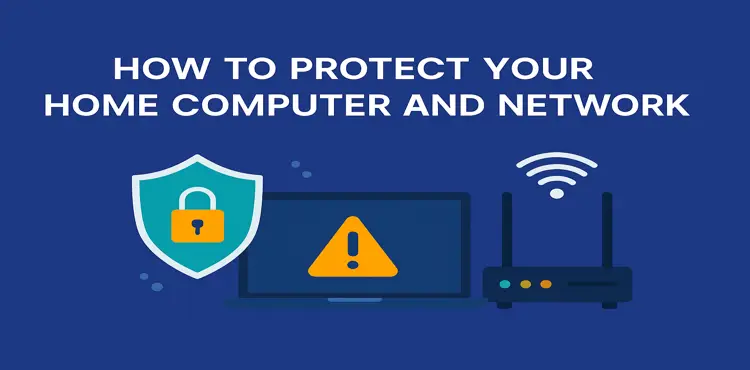Cybersecurity for Small Businesses(SMB): How to Stay Safe in a Digital World
In today’s increasingly connected world, cybersecurity is no longer optional—even for small businesses. While large corporations may seem like the obvious targets, statistics show that 43% of all cyberattacks are aimed at small businesses. Unfortunately, many small companies are unprepared and unequipped to deal with these threats.
This guide explores why cybersecurity is critical for small businesses, common threats to watch for, and practical steps to protect your data, customers, and bottom line.
Why Cybersecurity Matters for Small Businesses
Small businesses often assume they’re too small to be targeted—but this makes them attractive to hackers. Cybercriminals know smaller companies may lack strong security controls and internal IT staff.
The Real Risks Include:
- Financial loss from fraud or ransomware
- Data breaches affecting customers or employees
- Reputational damage and lost trust
- Operational downtime
- Compliance violations and legal consequences
Top Cybersecurity Threats Facing Small Businesses
1. Phishing Emails
Fake emails impersonating vendors or executives are used to steal login credentials or sensitive info.
2. Ransomware
Malware that encrypts your data and demands a ransom payment to unlock it.
3. Weak Passwords
Using simple or reused passwords makes it easy for attackers to break in.
4. Unpatched Software
Outdated systems and apps can be exploited through known security holes.
5. Insider Threats
Employees or contractors—malicious or careless—can expose sensitive information.
Cybersecurity Best Practices for SMBs
1. Train Your Employees
Educate your team on phishing, secure browsing, and how to handle suspicious emails.
2. Use Strong Passwords and Multi-Factor Authentication (MFA)
Implement password policies and enable MFA on all accounts and systems.
3. Keep Software and Systems Updated
Always install updates and patches as soon as they’re available.
4. Back Up Your Data Regularly
Use cloud backups and test them to ensure you can recover after an incident.
5. Install Antivirus and Firewall Protection
Protect devices and your network with up-to-date security software.
6. Limit Access to Sensitive Data
Only allow access to files and systems that are necessary for each employee’s role.
7. Create an Incident Response Plan
Prepare a step-by-step guide for responding to cyberattacks or data breaches.
Affordable Cybersecurity Solutions for SMBs
You don’t need a big IT team to secure your business. Consider these budget-friendly tools:
- Google Workspace / Microsoft 365: Built-in email security
- Bitdefender / Norton: Affordable antivirus and endpoint protection
- LastPass / 1Password: Easy password management
- Backblaze / Acronis: Reliable cloud backup solutions
- Managed Security Providers (MSPs): Outsourced cybersecurity management
What to Do if Your Small Business Is Hacked
- Isolate the threat: Disconnect affected devices immediately.
- Contact a cybersecurity expert: Assess and contain the damage.
- Notify stakeholders: Inform clients, partners, and regulatory bodies if necessary.
- Change all passwords: Update login credentials across systems.
- Review and strengthen your defenses: Patch vulnerabilities to avoid future attacks.
Final Thoughts: Start Small, Stay Secure
Cybersecurity may seem overwhelming, but it’s essential. SMBs that take steps to protect their data and systems are less likely to experience costly breaches or downtime. With the right tools and training, you can build a strong cybersecurity foundation—without breaking your budget.
🔐 Need Help with Small Business Cybersecurity?
Contact our team for a free consultation. We offer simple, effective, and affordable solutions tailored for small businesses like yours.




